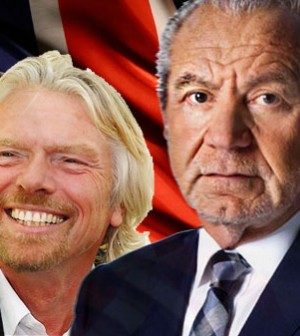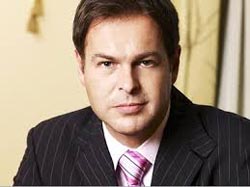
Imagine, getting up at 5AM without being tired and buzzing with energy throughout the entire day.
In only one year, you would gain almost 1100 hours or 45 days.
What would you do with all that extra time?
You could take your business to the next level, you could learn a foreign language, you could spend more time with your family…
But, isn’t it terribly difficult to get up early every day?
Sure, forming a new habit is always somewhat challenging at the beginning. You may be struggling a bit the first few days. After one week it is already much easier and after 3-4 weeks you will have created a new habit and it surely won’t be a big deal any longer.
So, yes, you probably will be tired for about a week. But, your body gets used to the new rhythm and to having less sleep very quickly – much quicker than you may think.
And you know, it is not so much the quantity of sleep you get, but much more the quality of your sleep that really counts.
Several years ago, I was sleeping almost 9 hours a day. And still, several times during the day I felt very tired. Now, I’m sleeping only 6 hours a day and I’m feeling much fresher and much more energized.
Here is the simple formula to greatly improve the quality of your sleep and to make getting up at 5AM really easy:
1: Change your beliefs about getting up early
Most people believe that they need 8 or 9 hours of sleep a day to “function” properly. I know from my experience and from the experience of many other people, that 6 hours is absolutely enough.Re-condition your mind and tell yourself that after a short period of adaptation you will be feeling absolutely great with only 6 hours of sleep a day and that it is NOT a big deal at all to get up at 5AM.
2: Don’t eat several hours before going to sleep
I recommend, you don’t eat anything after 7PM. Also, avoid drinking coffee, black tea or alcohol 6-7 hours before going to sleep.If you eat before going to sleep, additional energy will be required by your digestive system, the quality of your sleep will suffer and you will wake up tired in the morning.
3. You need a good reason to get up early
Think about why you would like to have more time in your life. What drives and motivates you? This will help you to get up early.I also recommend you write a task list for the following day and you define what task(s) you will tackle first thing in the morning. If you get up early and then you don’t know what to do, there is a “risk” that you just go back to bed.
4: Calm your mind before going to bed
Make it a habit to meditate or relax 20-30 minutes before going to bed. Don’t work or watch TV just before going to bed. If you do that, your mind keeps on running, it will take you longer to fall asleep, your sleep won’t be as deep and relaxed as it should be and you will be tired the next day.5: Make a firm decision to get up at 5AM and turn it into an exciting challenge
Before falling asleep, tell yourself to get up at 5AM – no matter what! Visualize yourself having a deep, relaxing and energizing good night’s sleep and getting out of bed at 5AM feeling refreshed and excited to start the day.That way, you condition your subconscious mind and getting up early will be much easier.
Make “getting up at 5AM” an exciting challenge. Most people won’t even try their entire life, many of those who try give up after only a few days… Yes, getting up early is a habit mostly used by highly successful people.
Will you succeed? Of course you will!
6: Don’t Snooze
I know, it’s tempting to snooze when the alarm clock rings, but it only makes your challenge of getting up early more difficult. You snooze once, the next day maybe twice, then you stay half an hour longer…Don’t think, don’t negotiate, don’t try to find any reasons why it would not be a problem to stay a few minutes longer… just get up, just do it!
You can even practice this behavior during the day: Lie down, set your alarm clock to ring in 5 minutes, relax and pretend you are sleeping… and as soon as the alarm goes off, tell yourself: “Time to get up, I’m looking forward to another exciting day…” – and just get out of bed.
7: Put your alarm clock out of reach
If the temptation to snooze is too strong, put the alarm clock further away from your bed so that you have no other choice than getting out of bed to switch off the alarm.8: Time to fully wake up
Ok, you just got out of your bed, but probably you are not fully awake yet. Open the window and take 5-10 deep breaths of fresh air. I also recommend some light physical exercises for at least 10-15 minutes to fully oxygenate your body and to get ready for the day.9: Be proud of your achievement
Less than 1% of the population gets up at 5AM and typically it’s only the high achievers and the super successful people. So, take a minute, enjoy your achievement and be proud of yourself.This may sound a bit childish, but it’s really important. Having this feeling of accomplishment will provide you with additional motivation and it will make getting up early easier for you the following days.
10: Make sure your nutrition is healthy and balanced
The quality of your nutrition has a huge influence on your energy level. The higher the quality of your nutrition, the more energy you will have and the less sleep you will need.I recommend you buy a good book on healthy nutrition. Here are some basic tips to give you some ideas: Eat more fruits and vegetables (ideally organic), drink enough water. Avoid alcohol, fast food, junk food, too much coffee or black tea… Reduce your consumption of sugar, unsaturated fatty acids, meat… as much as possible
Trust me, it’s not as difficult as you may think and it gets easier every day
The Conclusion:
Once again, getting up early will probably be somewhat challenging at the beginning, but it gets easier every day. You just have to push through the first 7-10 days. This takes some discipline and will power, but it is well worth it.Yes, you will be tired at the beginning, but after a week or so you will realize having more and more energy during the day and feeling less and less tired.
Our goal here is to be buzzing with energy throughout the entire day while sleeping less. There is no point in getting up at 5AM if afterwards you are tired for the rest of the day.
Some people recommend to make getting up early a slow and incremental process, where you get up 15 minutes earlier every 1-2 weeks.
When I decided to get up earlier, I immediately went from about 8AM to 6AM and about a year later I decided to give 5AM a try and it worked quite well for me.
But, you can experiment with both approaches.
Source: Addicted2success.com





 A
Gloucestershire native, J.K. Rowling is most famous for authoring the
immensely popular Harry Potter series of books, which later became
immensely popular movies as well.
A
Gloucestershire native, J.K. Rowling is most famous for authoring the
immensely popular Harry Potter series of books, which later became
immensely popular movies as well. Popularly
known as Lord Sugar and now Baron Sugar, Alan Sugar made his fortune in
the consumer electronics industry, creating the popular computer brand
known as Amstrad (short for “Alan Michael Sugar Trading“), which he later sold to BSkyB for roughly $187 million in July of 2007.
Popularly
known as Lord Sugar and now Baron Sugar, Alan Sugar made his fortune in
the consumer electronics industry, creating the popular computer brand
known as Amstrad (short for “Alan Michael Sugar Trading“), which he later sold to BSkyB for roughly $187 million in July of 2007. Graff
founded the world famous diamond jewelry business, Graff Diamonds, in
1960. He is intricately involved in every phase of the diamond business,
from sourcing and mining the raw materials to cutting, polishing and
marketing the finished product.
Graff
founded the world famous diamond jewelry business, Graff Diamonds, in
1960. He is intricately involved in every phase of the diamond business,
from sourcing and mining the raw materials to cutting, polishing and
marketing the finished product. A
phenomenal engineer and inventor by any standard, James Dyson has taken
his passion for building a better vacuum cleaner to stratospheric
heights, earning his fortune through innovative creations such as the
Dual Cyclone and Dyson Ball vacuum cleaners.
A
phenomenal engineer and inventor by any standard, James Dyson has taken
his passion for building a better vacuum cleaner to stratospheric
heights, earning his fortune through innovative creations such as the
Dual Cyclone and Dyson Ball vacuum cleaners.

